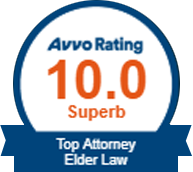YOUR ASSETS AND THE “RESOURCE” STANDARD
Medicaid also looks at your assets or “resources” when determining eligibility. An exempt resource, like a home you live in, is not counted as an asset to be spent down. Assets you give away do not count if you are applying for “community” or non-nursing home Medicaid. However, if you are applying for Medicaid for nursing home care, your “resources” include property you’ve given away during the prior 60 months. This five year look-back rule is critical in asset protection planning for Medicaid. If an applicant has resources in excess of the eligibility limits, he will not be eligible for Medicaid until he incurs medical expenses equal to or greater than the excess resources. The eligibility limits for income and assets are very low.
EXEMPT RESOURCES
Certain types of property are exempt from being considered “resources” (or assets) for purposes of Medicaid eligibility. These include:
- A homestead exemption for an applicant’s equity in a home (up to $955,000 in Westchester County) is available if the applicant or spouse still reside in the home;
- One automobile, personal effects (including jewelry), household furniture and appliances are exempt;
- A minimal set aside for pre-paid funeral/burial arrangements and;
- Special allowances are afforded if the individual is the parent of a minor who is certified blind, disabled or similar unfortunate circumstances;
If a person who’s been on Medicaid dies with resources, Medicaid may have the right to be paid back typically from probate assets. This is one reason people create a trust to own assets – to prevent Medicaid from having access to assets for payback. A trust is a non-probate asset.
PRESERVING FAMILY ASSETS
Clients want to know how they can keep their money and have an individual be eligible for Medicaid if that is needed down the road. We recommend using an irrevocable trust to accomplish the goal of preserving assets for the family unit while enabling a person to qualify for Medicaid. If a nursing home application must be made within 5 years of the time a gift in trust is made, it is possible to use other funds to pay out-of-pocket health care costs and wait until the five year period runs (from the date of asset transfer) before a Medicaid application is filed.
CREATING IRREVOCABLE TRUSTS
An irrevocable trust or Medicaid asset protection trust is often used to protect assets if a person seeks to qualify for Medicaid. The trust is set up with assets contributed by the person who may need Medicaid. Those assets are transferred into the name of the trust.
The trust is managed by a trustee, who can be a family member or an independent person or financial institution. There are many advantages of making a gift in trust, as opposed to outright to beneficiaries:
- The trustee has oversight on how the funds are managed and used.
- Disputes among siblings and/or potential overreaching by family members can be minimized.
- Assets can be protected from creditors of your children.
- The trust agreement can be drafted to ensure that things go the way you want, so there is more flexibility, even as you part with control.
- You can retain the income from a Medicaid trust.
- Appreciated property retains its tax advantages when owned by the trust.
- Homes owned in the trust can still qualify for STAR and VA exemptions or credits.
INCOME ONLY MEDICAID TRUSTS
This is an irrevocable trust that essentially limits the use of trust funds to “income only.” If the trust provides that income cannot be used for the creator of the trust (known as the “grantor” or “settlor”) and/or the trust invests only in non-income producing assets, the underlying asset (e.g. a family home) will not be considered an available resource for Medicaid.
If the trust is funded with assets which produce income, but the income is paid only to beneficiaries (e.g. children or grandchildren and not the “grantor”) the underlying asset is not considered a resource for Medicaid, nor is the “income” of the trust considered the income of the Grantor for Medicaid planning purposes.
If a trust owns investment assets and an adult child is named as the income beneficiary, the trustees will distribute the income to the child. While the child cannot be required to use those funds for a parent’s care, there may be a fundamental understanding that this could be the case.




